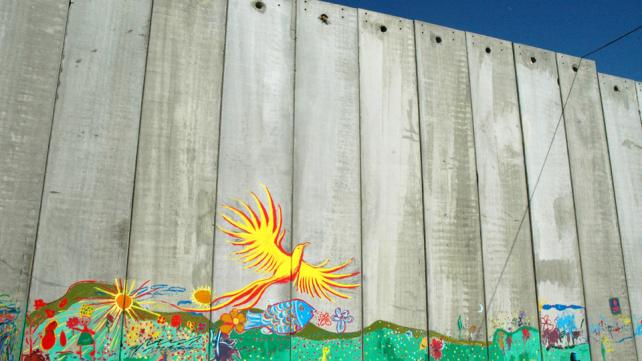
It is almost forty years since Dr. King made his landmark speech in which he spoke of his famous dream. By drawing attention to the plight of the African-American people in the US, he helped establish the Civil Rights movement that serves as a beacon of hope for millions of minorities throughout the globe. Had Dr. King been alive today, he would no doubt be talking about the plight of the Palestinians.
He would have observed that they are still not a free people, but a people "sadly crippled by the manacles of segregation and the chains of discrimination." A state sits in occupation over their territories, and periodically shuts off access to their economic lifeline. They are forced to live "on a lonely island of poverty in the midst of a vast ocean of material prosperity." He would have observed that they have been forced into exile in their own land, "sweltering with the heat of injustice and oppression."
We get a glimpse of what Dr. King by reading the writings of Nelson Mandela. Mandela wrote last year "Palestinians are not struggling for a 'state' but for freedom, liberation and equality, just like we were struggling for freedom in South Africa." He said that there are two judicial systems in Israel, one for Jews and one for Palestinians. Palestinian property is not recognized as private property because it can be confiscated.
The Palestinians live under conditions of apartheid, in a culture of state-sponsored terrorism. The Israeli military machine, using US-supplied weapons and technology, wages war to subjugate them. He would have spoken of the imperative to prevent terrorism, by trying to get to the root causes-- which are social and political--rather than seeking security through military means.
Of course, Dr. King abjured violence, and was a strong believer in Gandhi's philosophy of ahimsa, or non-violence. He would have counseled the Palestinians, just as he counseled the African-Americans on the steps of the Lincoln Memorial on August 28, 1963 that they must conduct their struggle on the "high plane of dignity and discipline." He would have quoted from the Koran that human life is sacred, and under no conditions does Islam sanction the killing of innocent civilians.
He would have been outraged by the suicide bombers who murder civilians in the most cowardly fashion. But he would have been no less critical of a democratic state that bombs innocent civilians indiscriminately, on the pretext that they are hiding terrorists in their midst. He would have been shocked that a state would use bulldozers to raise homes, on the pretext that they may have once housed suicide bombers. And he would have condemned the tactics of this state's security forces, which snare children into stone throwing, so that they can be gunned down with automatic weaponry.
He would have asked the US to live by its fundamental values-- that all men are created equal-- in its foreign as well as its domestic policies. He would have called upon his fellow Americans to value a Palestinian life just as much as they value an Israeli life, and to recognize the fundamental injustice of a situation where a thousand Palestinians, mostly children and teenagers, can be killed in front of the world's television cameras, and yet the blame for violence can be laid on the door of the Palestinians.
He would have called on the US to impose economic or political sanctions on the state that deprives its citizens of the most basic of human rights, just because they are of a different race, not reward it with economic and military aid. He would have pointed out the futility of using the US veto in the UN Security Council to prevent the policies of this state from being censured when it already stands condemned in the eyes of world opinion.
He would have offered to go to the Middle East and mediate peace between "the children of Abraham." He would have tried his best to bring the warring parties together. He would have told one that killing terrorists would not solve the problem of terrorism, because new ones will arise in their place. He would have told the other that they will not be able to destroy the state by random killings of its innocent civilians, because the balance of power will ensure that they will lose 20 of their own for every one of the other they kill.
He would asked both to make genuine peace with each other, and visualize the day when both Jews and Palestinian children will be able to hold hands and sing the old spiritual, "Free at last! Thank God Almighty, we are free at last!" Free from our mutual hatred, free from our prejudices, and free from our fears.
Ahmad Faruqui is a Fellow with the American Institute of International Studies. A native of Pakistan, he has lived most of his adult life in the United States. He holds a Ph. D. in economics from the University of California, Davis.
Photo Attribution: http://commons.wikimedia.org/wiki/File:Mural_on_Israeli_wall.jpg

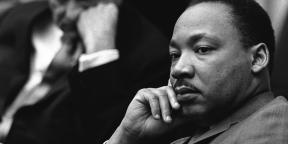
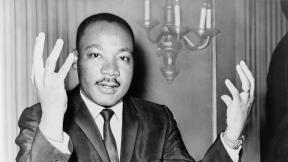
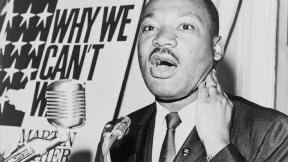
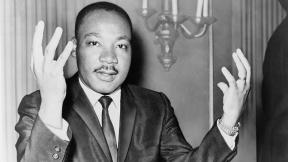
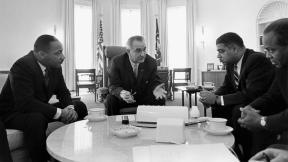


Add new comment